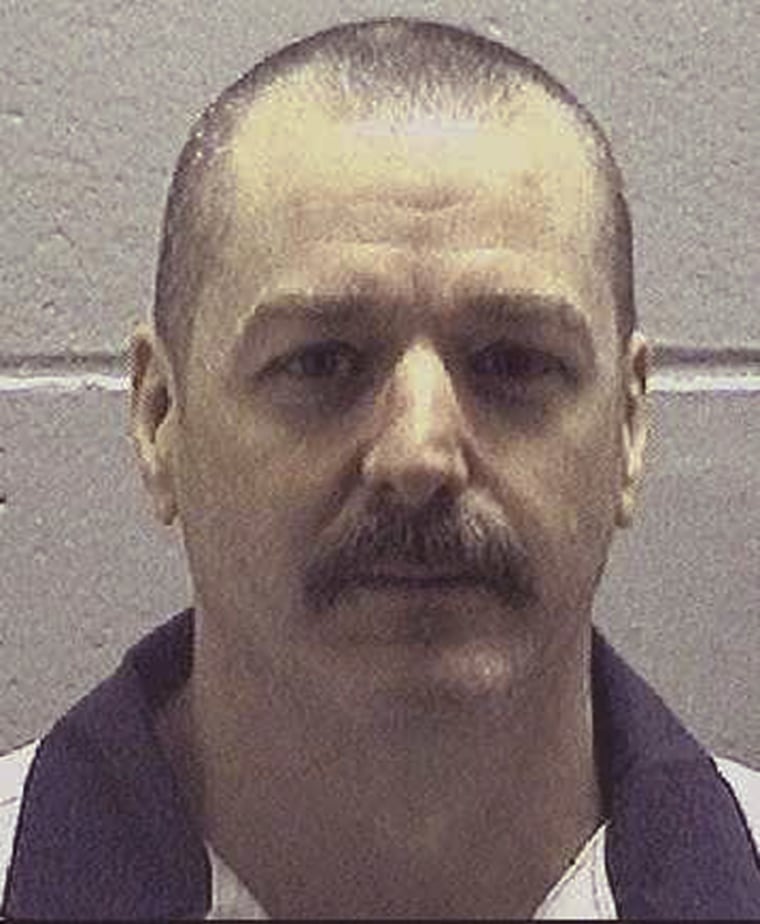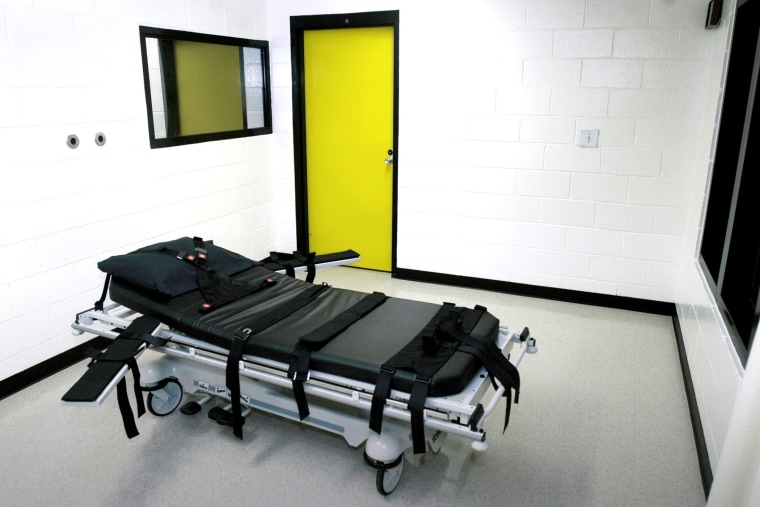ATLANTA -- A man convicted of killing a woman he met at a Georgia nightclub was executed Thursday after losing a last-minute round of appeals.
Marcus Ray Johnson, 50, was put to death at 10:11 p.m. at the state prison in Jackson. Johnson was convicted in the March 1994 rape and murder of Angela Sizemore in Albany.
Brian Kammer, an attorney for Johnson, argued his client shouldn't be executed because doubts remained about his guilt. Prosecutors said there was no doubt Johnson killed Sizemore.
RELATED: Georgia inmate Marcus Ray Johnson denied beer as last meal
A Butts County Superior Court judge on Wednesday rejected a constitutional challenge to Johnson's sentence and conviction and declined to stop his execution. The Georgia Supreme Court on Thursday upheld that ruling. The U.S. Supreme Court rejected Johnson's appeal for a stay of execution without comment Thursday evening.
The Georgia Board of Pardons and Paroles on Wednesday denied Johnson's request to commute his sentence or to delay it for 90 days to allow further DNA testing. The board, as is its custom, did not give a reason for its denial. The parole board is the only entity authorized to commute a death sentence in Georgia.

"The duty of the Board of Pardons and Paroles is to act as a failsafe to prevent miscarriages of justice such as the execution of persons whom the evidence shows may be innocent," Kammer said. "The Board failed egregiously in this respect, and as a result the state of Georgia is about to execute an innocent man."
Sizemore and Johnson met at an Albany nightclub the night of March 23, 1994, and witnesses saw them kissing and drinking heavily. They were seen leaving the bar together early the next morning.
A man walking his dog later that morning found Sizemore's body inside her SUV behind an apartment complex. She had been stabbed 41 times with a small, dull knife and sexually assaulted her with a pecan branch, prosecutors said.
Johnson told investigators and Sizemore had sex in a grassy vacant lot and that he then "kind of lost it" and punched her in the face during an argument. But Johnson said he left immediately afterward and headed home to collapse on his front yard, where he awoke the next morning.
A judge stopped Johnson's previously scheduled execution in October 2011 to allow for new DNA testing on some evidence but later denied Johnson's request for a new trial.
The only physical evidence linking Johnson to Sizemore supports his admission of consensual sex and her bloodied nose, Kammer argued. The rest of the state's case is circumstantial and is based on unreliable and inconsistent eyewitness testimony, he said in court filings.
Investigators never found Sizemore's blood on Johnson's pocket knife or on the branch prosecutors said was used to sexually assault her, Kammer argued. They didn't find Johnson's DNA or fingerprints in Sizemore's SUV, which police believed he drove from the crime scene to a different part of town.
Dougherty County District Attorney Greg Edwards, who was a prosecutor in the case, said earlier this week that he has no doubts about Johnson's guilt.
All of the arguments Johnson's defense team has raised have been heard and rejected by courts, he said. The eyewitnesses saw Johnson in broad daylight and were completely reliable, and new DNA evidence didn't prove Johnson's innocence and didn't implicate anyone else, Edwards said.
